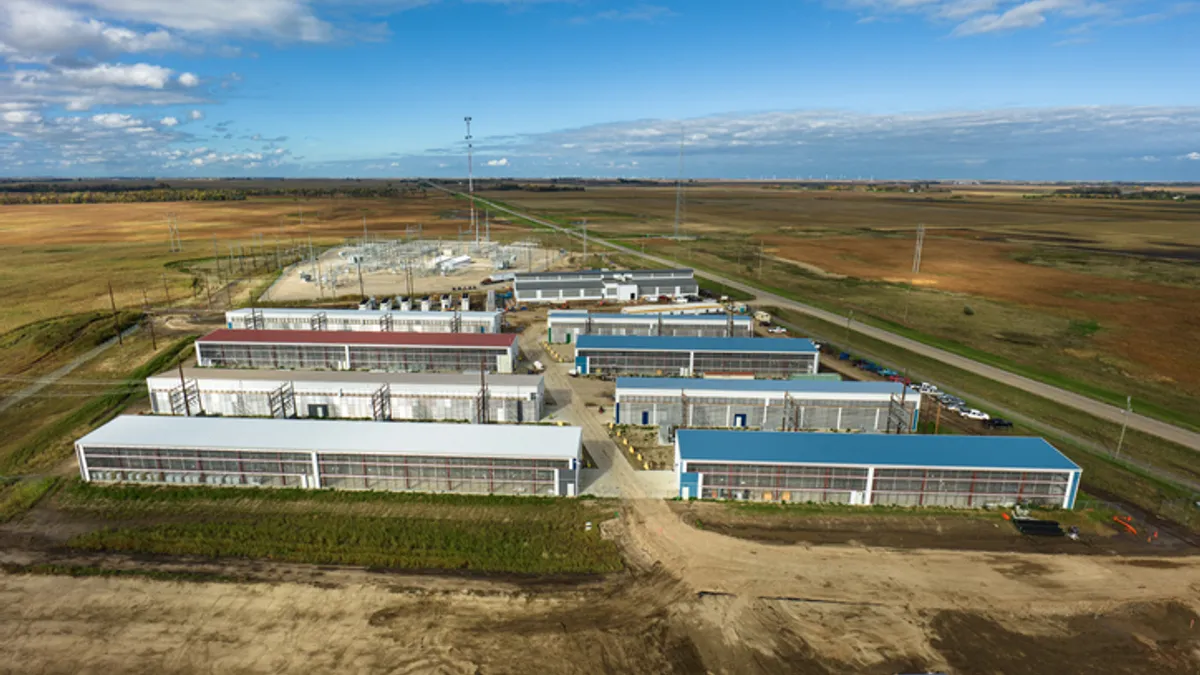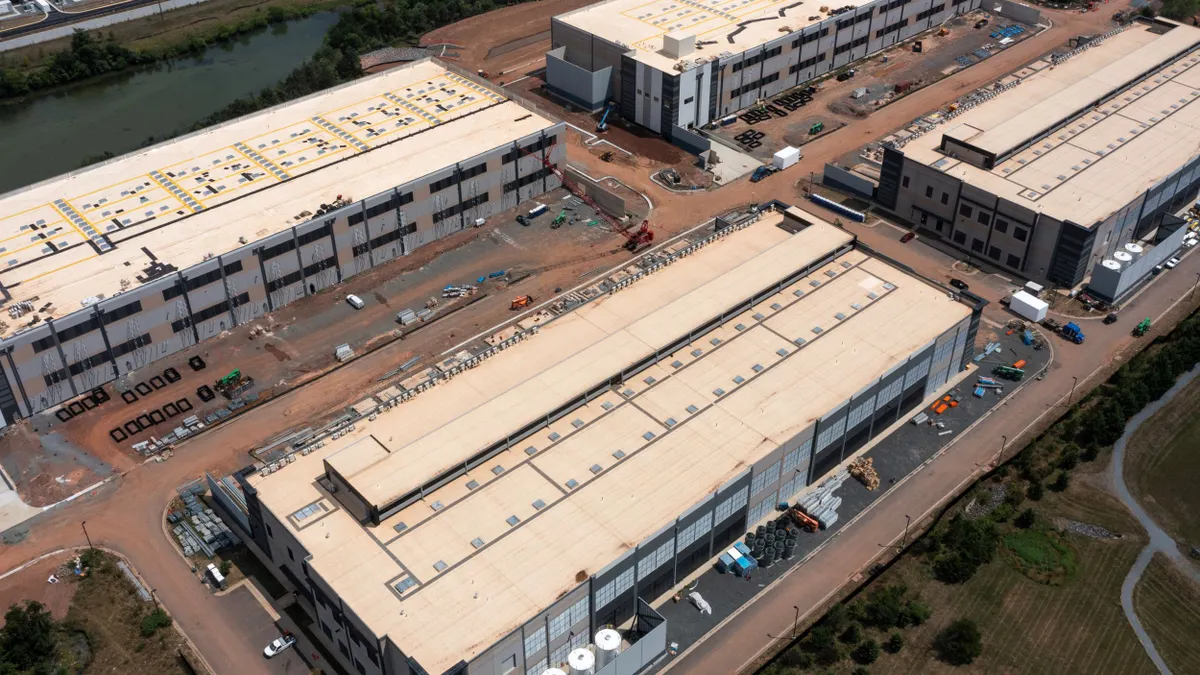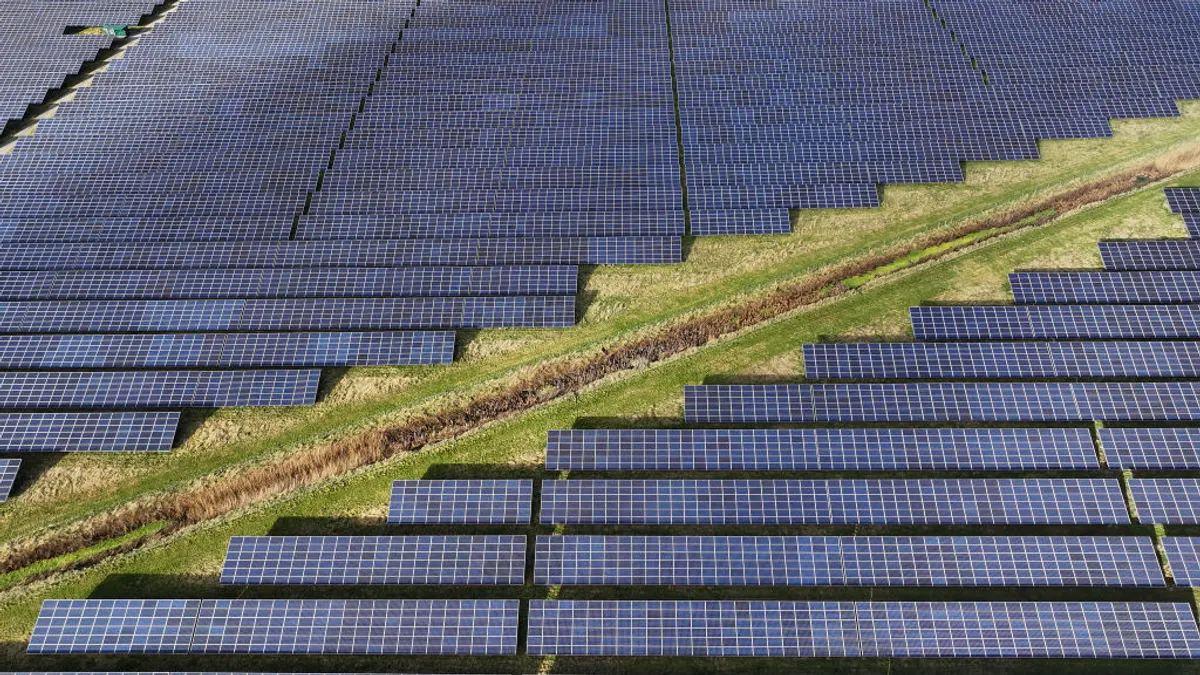As American companies look to meet data center demands driven by the increased use of artificial intelligence, Alberta, Canada, has something that might help: gas, water and cold weather.
“We have a lot of power generating capabilities,” Akolisa Ufodike, a professor at York University’s Center for Administrative Studies and Alberta's former deputy minister of trade, said in an interview. “We have a lot of water and gas here that we can use to produce power for these data centers [and] our climate is cold.”
About 40% of data center power use is for cooling, according to a McKinsey analysis. That gives Alberta, which sits north of Montana and Washington, a cost advantage over warmer areas as a place to locate data centers, says Ufodike.
We have “natural cooling for several months of the year,” he says.
Alberta has a long-standing commitment to minimizing regulatory bottlenecks for new developments, and continues to work with U.S. states and the federal government even during these trying diplomatic times, he says.
“In Alberta, there are both ministerial and deputy minister committees which are actively engaged in monitoring and managing trade relations with the United States,” he said. “There are many years of history between ourselves and the United States in terms of doing business, and that's not trivializing the challenges of the current day. But there's a willingness on both sides to find ways to navigate this.”
The number of applications received by the Alberta Electric System Operator has increased over the past year, according to reports. The increased number of applications represents about 5,000 MW of data center projects at the preliminary stages of development. The province's grid is said to have a capacity of about 21,000 MW.
The province has also launched an AI Data Centres Strategy, with a goal of securing $100 billion in private investment over the next five years. Amazon AWS has already invested $4.3 billion in the province, and Wonder Valley AI Industrial Park, a mammoth $70 billion development, is scheduled to be built by celebrity Canadian financier Kevin O’Leary.
Alberta’s initiative comes as the global demand for AI compute power is projected to increase by 165% by 2030, a Goldman Sachs analysis says.
According to Dell’Oro Group, a consultancy, data center capital expenditure spending will hit $1.1 trillion by 2029, up from $430 billion in 2024. Another consultancy, Newmark, reports that U.S. real estate investment and development in AI-related data centers reached a high of $31.5 billion in 2024, doubling the facility space over the past five years to 50 million square feet.
Despite record construction activity in this space, it’s generally accepted that data center capacity will struggle to keep pace with demand. McKinsey predicts that, to avoid a supply deficit in 2030, at least twice the data center capacity built since 2000 would have to be built in less than a quarter of the time.
Investors and companies serving the market have figured out that this demand and supply equation will produce serious returns. For example, Schneider Electric is investing $700 million in its U.S. operations through 2027. Capital spend will include facility upgrades and new data centers in Texas, Tennessee, Ohio, North Carolina, Massachusetts and Missouri.
International firms are also pouring billions into new builds in North America. For example, in late 2024, California-based Equinix, the largest real estate investment trust focused on data centers with a market capitalization of about $84 billion, formed a $15 billion joint venture with GIC Singapore and Canada Pension Plan Investment Board for hyperscale development.
The tariff climate, which holds the potential to raise prices for building materials like aluminum and steel and for servers and cooling systems, has created new cost equations for these big data center bets, analysts say. Investment decisions for some companies could be postponed due to market volatility and a weaker U.S. dollar.
But Alberta is prepared to double down on its bet that it has the resources and the policy approach that could attract continued investment in the sector, Ufodike says.
“Canadian companies are entrepreneurial,” he said. “American companies are entrepreneurial. I'm sure they'll be able to find a way, in spite of what happens on the policy side, to ensure that those trade relations continue to thrive. There are workarounds there.”
Correction: The piece originally referred to Ufodike as deputy minister of immigration and former deputy minister of trade.



















